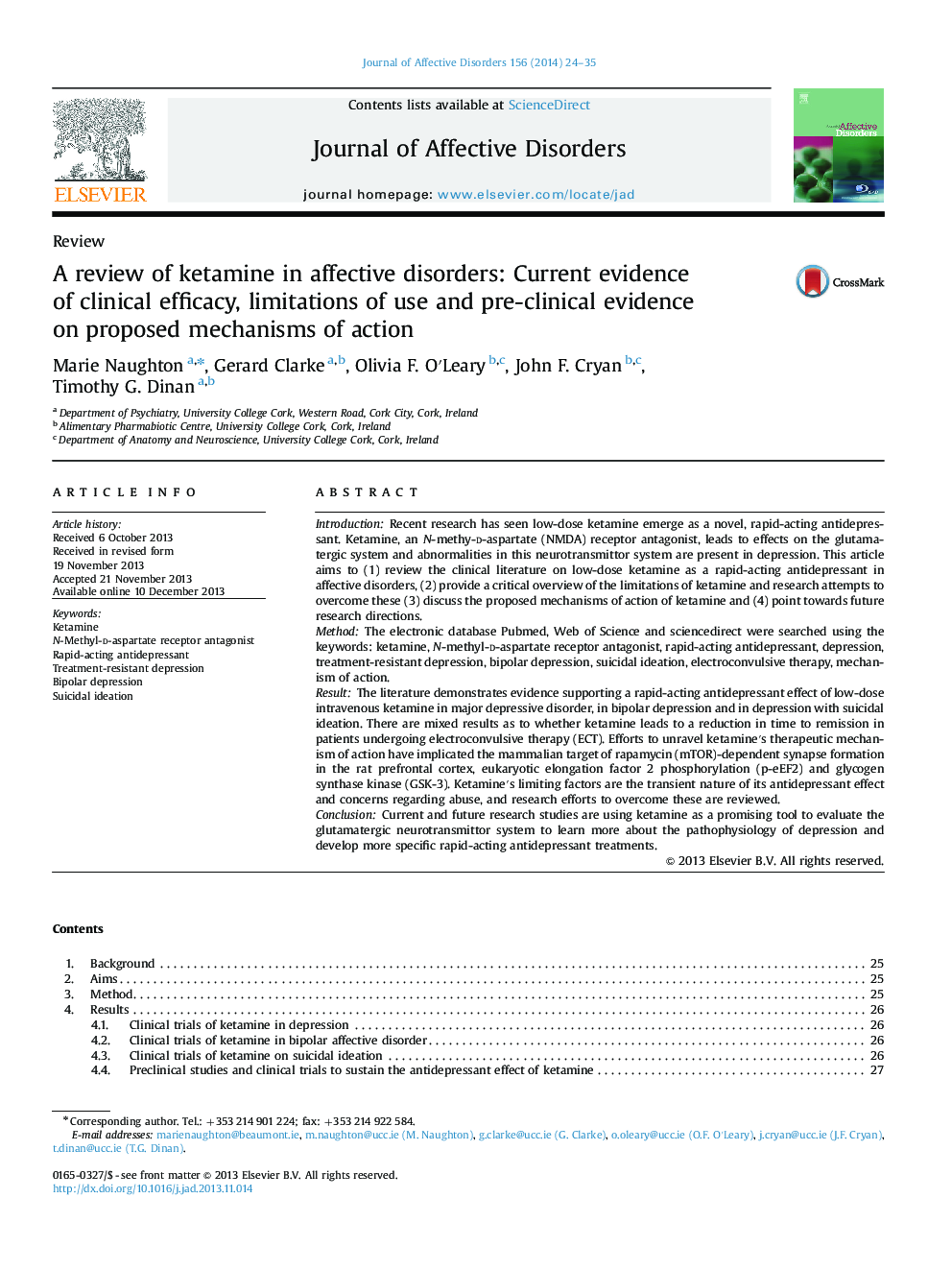| کد مقاله | کد نشریه | سال انتشار | مقاله انگلیسی | نسخه تمام متن |
|---|---|---|---|---|
| 6233801 | 1608169 | 2014 | 12 صفحه PDF | دانلود رایگان |
IntroductionRecent research has seen low-dose ketamine emerge as a novel, rapid-acting antidepressant. Ketamine, an N-methy-d-aspartate (NMDA) receptor antagonist, leads to effects on the glutamatergic system and abnormalities in this neurotransmittor system are present in depression. This article aims to (1) review the clinical literature on low-dose ketamine as a rapid-acting antidepressant in affective disorders, (2) provide a critical overview of the limitations of ketamine and research attempts to overcome these (3) discuss the proposed mechanisms of action of ketamine and (4) point towards future research directions.MethodThe electronic database Pubmed, Web of Science and sciencedirect were searched using the keywords: ketamine, N-methyl-d-aspartate receptor antagonist, rapid-acting antidepressant, depression, treatment-resistant depression, bipolar depression, suicidal ideation, electroconvulsive therapy, mechanism of action.ResultThe literature demonstrates evidence supporting a rapid-acting antidepressant effect of low-dose intravenous ketamine in major depressive disorder, in bipolar depression and in depression with suicidal ideation. There are mixed results as to whether ketamine leads to a reduction in time to remission in patients undergoing electroconvulsive therapy (ECT). Efforts to unravel ketamineâ²s therapeutic mechanism of action have implicated the mammalian target of rapamycin (mTOR)-dependent synapse formation in the rat prefrontal cortex, eukaryotic elongation factor 2 phosphorylation (p-eEF2) and glycogen synthase kinase (GSK-3). Ketamineâ²s limiting factors are the transient nature of its antidepressant effect and concerns regarding abuse, and research efforts to overcome these are reviewed.ConclusionCurrent and future research studies are using ketamine as a promising tool to evaluate the glutamatergic neurotransmittor system to learn more about the pathophysiology of depression and develop more specific rapid-acting antidepressant treatments.
Journal: Journal of Affective Disorders - Volume 156, 1 March 2014, Pages 24-35
